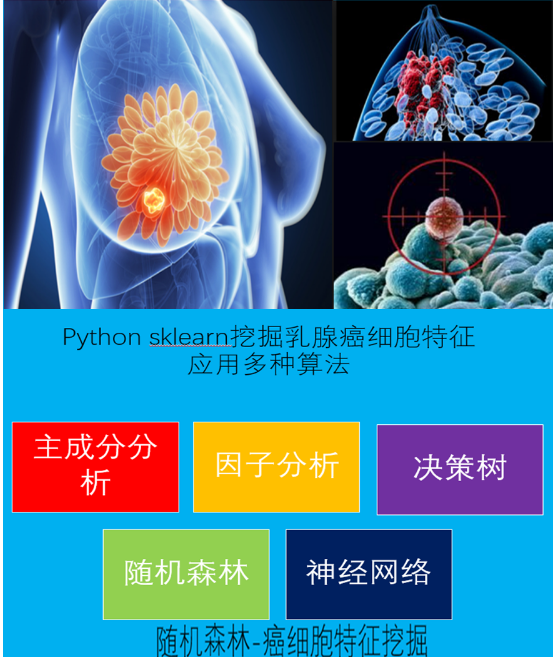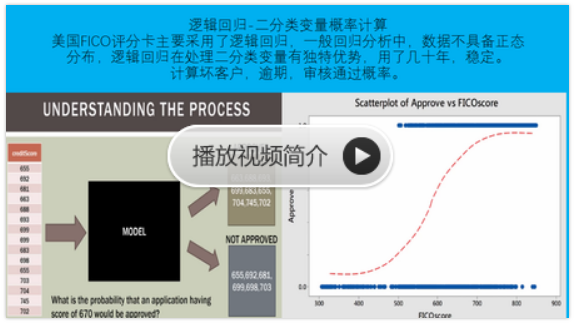sklearn实战-乳腺癌细胞数据挖掘(博客主亲自录制视频教程)
https://study.163.com/course/introduction.htm?courseId=1005269003&utm_campaign=commission&utm_source=cp-400000000398149&utm_medium=share

Latent Semantic Analysis (LSA) Tutorial
译:http://www.puffinwarellc.com/index.php/news-and-articles/articles/33.html
WangBen 2011-09-16 beijing
http://blog.csdn.net/yihucha166/article/details/6783212
潜语义分析LSA介绍
Latent Semantic Analysis (LSA), also known as Latent Semantic Indexing (LSI) literally means analyzing documents to find the underlying meaning or concepts of those documents. If each word only meant one concept, and each concept was only described by one word, then LSA would be easy since there is a simple mapping from words to concepts.
Latent Semantic Analysis (LSA)也被叫做Latent Semantic Indexing (LSI),从字面上的意思理解就是通过分析文档去发现这些文档中潜在的意思和概念。假设每个词仅表示一个概念,并且每个概念仅仅被一个词所描述,LSA 将非常简单(从词到概念存在一个简单的映射关系)

Unfortunately, this problem is difficult because English has different words that mean the same thing (synonyms), words with multiple meanings, and all sorts of ambiguities that obscure the concepts to the point where even people can have a hard time understanding.
不幸的是,这个问题并没有如此简单,因为存在不同的词表示同一个意思(同义词),一个词表示多个意思,所有这种二义性(多义性)都会混淆概念以至于有时就算是人也很难理解。

For example, the word bank when used together with mortgage, loans, and rates probably means a financial institution. However, the word bank when used together with lures, casting, and fish probably means a stream or river bank.
例如,银行这个词和抵押、贷款、利率一起出现时往往表示金融机构。但是,和鱼饵,投掷、鱼一起出现时往往表示河岸。
How Latent Semantic Analysis Works
潜语义分析工作原理
Latent Semantic Analysis arose from the problem of how to find relevant documents from search words. The fundamental difficulty arises when we compare words to find relevant documents, because what we really want to do is compare the meanings or concepts behind the words. LSA attempts to solve this problem by mapping both words and documents into a "concept" space and doing the comparison in this space.
潜语义分析(Latent Semantic Analysis)源自问题:如何从搜索query中找到相关的文档。当我们试图通过比较词来找到相关的文本时,存在着难以解决的局限性,那就是在搜索中 我们实际想要去比较的不是词,而是隐藏在词之后的意义和概念。潜语义分析试图去解决这个问题,它把词和文档都映射到一个‘概念’空间并在这个空间内进行比 较(注:也就是一种降维技术)。
Since authors have a wide choice of words available when they write, the concepts can be obscured due to different word choices from different authors. This essentially random choice of words introduces noise into the word-concept relationship. Latent Semantic Analysis filters out some of this noise and also attempts to find the smallest set of concepts that spans all the documents.
当文档的作者写作的时候,对于词语有着非常宽泛的选择。不同的作者对于词语的选择有着不同的偏好,这样会导致概念的混 淆。这种对于词语的随机选择在 词-概念 的关系中引入了噪音。LSA滤除了这样的一些噪音,并且还能够从全部的文档中找到最小的概念集合(为什么是最小?)。
In order to make this difficult problem solvable, LSA introduces some dramatic simplifications.
1. Documents are represented as "bags of words", where the order of the words in a document is not important, only how many times each word appears in a document.
2. Concepts are represented as patterns of words that usually appear together in documents. For example "leash", "treat", and "obey" might usually appear in documents about dog training.
3. Words are assumed to have only one meaning. This is clearly not the case (banks could be river banks or financial banks) but it makes the problem tractable.
To see a small example of LSA, take a look at the next section.
为了让这个难题更好解决,LSA引入一些重要的简化:
1. 文档被表示为”一堆词(bags of words)”,因此词在文档中出现的位置并不重要,只有一个词的出现次数。
2. 概念被表示成经常出现在一起的一些词的某种模式。例如“leash”(栓狗的皮带)、“treat”、“obey”(服从)经常出现在关于训练狗的文档中。
3. 词被认为只有一个意思。这个显然会有反例(bank表示河岸或者金融机构),但是这可以使得问题变得更加容易。(这个简化会有怎样的缺陷呢?)
